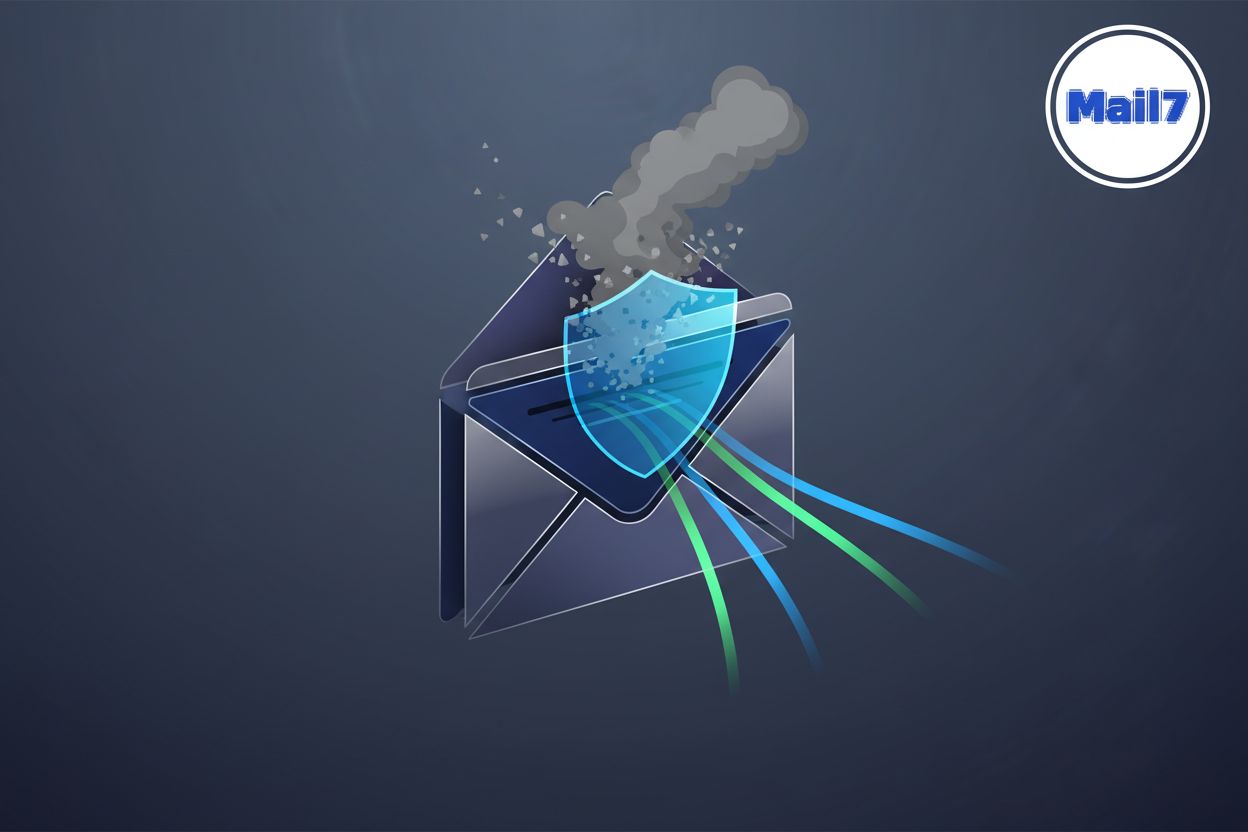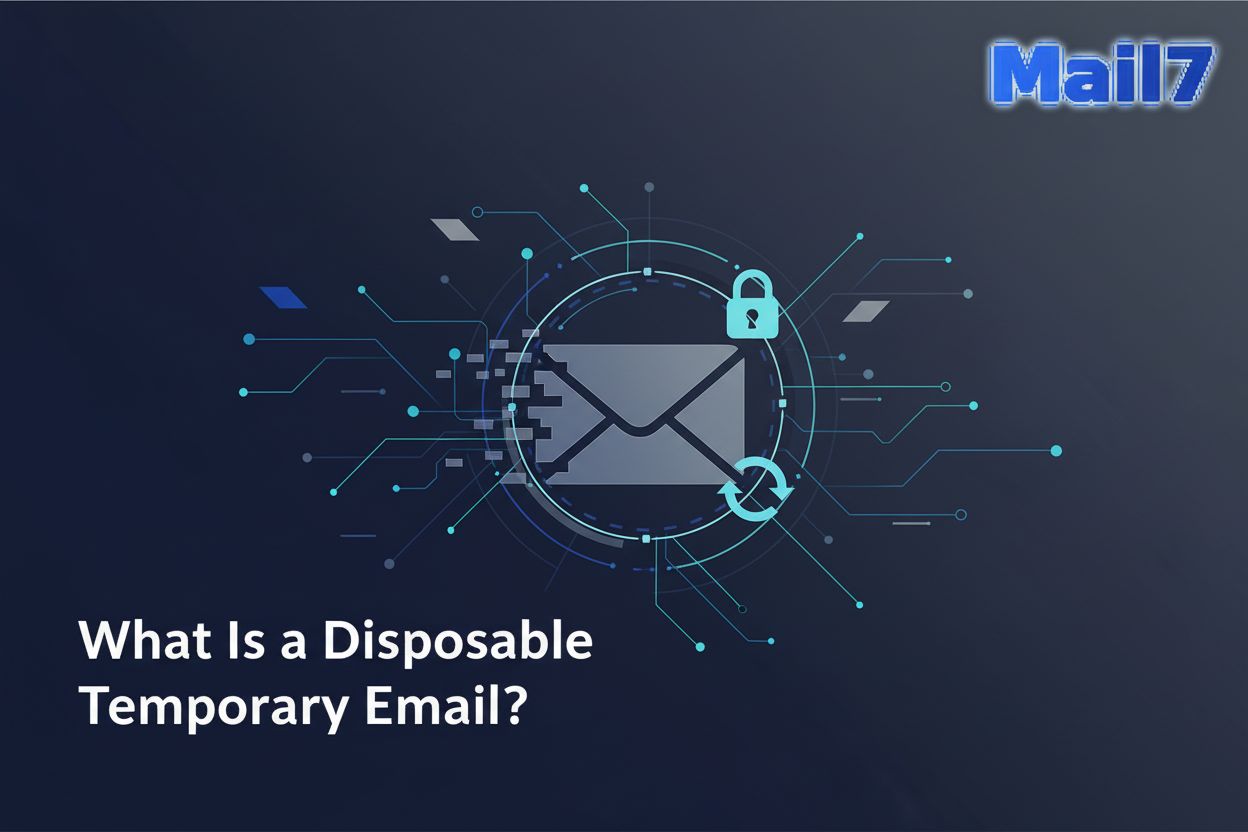Are Disposable Emails Legal?
TL;DR
Understanding Disposable Emails: What Are They?
Ever signed up for something just to get bombarded with spam? Disposable emails might just be your digital shield.
So, what are disposable email addresses, really? Think of them as burner email accounts. You create one, use it for a specific purpose -- like signing up for a free trial or downloading an ebook -- and then, poof, you can ditch it. They're temporary email addresses, not meant for long-term use.
- The main reason people use them is avoiding spam. Nobody wants their real inbox cluttered with promotional emails from every site they've ever visited. It's especially useful when you're, say, testing a new service that requires an email to sign up.
- Another biggie is privacy. Some folks are wary of handing out their primary email address, especially if they're not sure about a website's security or trustworthiness. Using a DEA adds a layer of anonimity.
- And let's be clear: disposable emails are different from your regular Gmail or Outlook accounts. Those are meant to be permanent, while disposable ones are designed to self-destruct (kinda cool, right?).
Ever wondered how these things actually work? It's actually pretty straightforward. Disposable email services are platforms that provide temporary, often anonymous, email inboxes. When you need an email address, you get one instantly from the service, usually without any signup process. Emails sent to that address are then delivered to a temporary inbox that you can access through the service's website or an api. Common examples include services like Mailinator, Temp-Mail, and Guerrilla Mail.
- They're created on the fly. The service generates a unique email address for you instantly. It's not like you're signing up for a whole new email account—it's more like borrowing one for a bit.
- These addresses are managed by the service provider. They handle the incoming emails and make sure everything works smoothly. Some services even offer api integrations, so developers can build disposable email functionality into their apps.
Developers love disposable emails, and for good reason. It makes testing processes easier.
- Email testing is a huge use case. When developers are building or updating email-related features, like signup forms or password resets, they need to test them thoroughly. Using real email addresses for this can be a pain and risk spamming real users.
- They also help avoid spam traps. Spam traps are email addresses used to catch spammers. If you accidentally send an email to one, it can hurt your sender reputation. Disposable emails let developers test without risking their primary email addresses or domains.
- Plus, it's all about automation. Many developers automate their email workflows. Disposable emails can be integrated into these workflows to create temporary accounts for testing purposes, streamlining the whole process. Think of it like a safety net for your email integrations.
So, what's next? Now that we've covered the basics, let's dive into whether or not using these disposable emails is actually legal, and how it fits into the broader legal landscape.
The Legality Landscape: Are DEAs Actually Legal?
Okay, so you're wondering if disposable emails are legal? Well, here's the thing: it's not a simple yes or no. Think of it like using a VPN – perfectly fine in most cases, but it depends on what you're using it for.
Disposable email addresses (DEAs) themselves aren't illegal. Creating or using one won't land you in jail, generally speaking. It's all about how you use them. Legitimate uses include signing up for a newsletter you're not sure about, testing new features on your website, or keeping your main inbox clean from promotional junk. It's like using a fake name at a bar – not a big deal unless you're trying to commit fraud.
- The legality hinges on intent. Are you trying to hide something illegal? That's where you'll run into trouble. For example, if you're creating multiple accounts to manipulate a stock's price, you're way over the line.
- It's also worth checking the terms of service. Most DEA providers have their own rules about what you can and can't do. Violating these terms might not be illegal, but it could get you banned from the service.
- Acceptable use policies are key. Lots of service providers outline explicitly what constitutes appropriate and inappropriate use. Ignorance isn't a defense.
Now, let's talk about when disposable emails cross over to the dark side. Using them for anything fraudulent is a big no-no. Think scams, identity theft, or anything else that involves deceiving people for personal gain.
- Using DEAs to circumvent security measures or violate terms of service is also a problem. For instance, creating multiple accounts on a social media platform to spread misinformation.
- Spamming is another major issue. Nobody likes getting bombarded with unsolicited emails, and using disposable addresses to send them is a quick way to get blacklisted.
- Creating fake accounts for malicious purposes is definitely illegal.
GDPR and other data privacy laws do apply to DEAs, surprisingly. Even though they're temporary, they still handle personal data (at least temporarily). It might seem surprising because the data is ephemeral, but the principles of data protection still apply. Key GDPR principles like data minimization (only collecting what's necessary), purpose limitation (using data only for the stated purpose), and storage limitation (not keeping data longer than needed) are highly relevant.
- If you're a developer using DEAs in your applications, you're responsible for ensuring compliance with these laws. This means being transparent about how you're collecting and using data, even if it's just for a short period.
- You need to ensure data protection regulations are followed, specifically how long the data is stored and how it's disposed of. For example, a service that stores temporary emails indefinitely would likely be non-compliant.
- It's important to note that some services may not be fully GDPR compliant. So, it's your responsibility to make sure any service you use meets the legal requirements.
Imagine a retail company using DEAs to test their new promotional email campaign. They create hundreds of disposable emails, sign them up for the newsletter, and track how many actually open the emails and click on the links. This is a legitimate use case, as long as they're transparent about it.
Now, flip it. Someone creates hundreds of fake accounts using DEAs to leave fake reviews on a product page to boost sales. That's illegal.
So, are disposable emails legal? It’s all about using them responsibly, and making sure you're not up to no good.
Best Practices for Using Disposable Emails Legally and Ethically
Alright, so you wanna play it cool with disposable emails, huh? It's not just about dodging spam; it's about doing things the right way. Here's the lowdown on keeping it legal and ethical.
First thing's first: make sure those emails are actually valid. I mean, what's the point of using a disposable email if it's just gonna bounce anyway? Implementing robust email validation techniques can help prevent a lot of headaches down the road.
- Think about it – you're saving resources by not sending emails to addresses that don't exist. This keeps your sender reputation healthy.
- Use email verification apis. These tools check if the disposable email service itself is functional and can receive emails before you send anything to a specific address generated by it. The goal here is to ensure the temporary inbox is ready, not necessarily that the address will be "active" long-term.
- It's like having a bouncer at the door of your email list, making sure only the legit folks get in.
Don't be shady about using disposable emails. Let people know what's up. Transparency is key to maintaining trust, even if it's just a temporary email address.
- If you're using DEAs in your app or service, tell your users. Explain why you're using them and how it benefits them.
- Give users options. If someone really doesn't want to use a disposable email, let them use a regular one.
- Be upfront about data collection. Even if the email is temporary, you're still collecting data. Tell users what you're collecting and how you're using it.
Keep an eye on things. Regularly monitor email usage for anything fishy. It's like being a good digital citizen – you're helping to keep the internet clean.
- Set up alerts for suspicious activity. If you see a bunch of disposable emails being used to create fake accounts, investigate.
- Audit your email logs. Look for patterns that might indicate abuse.
- Implement security measures to prevent abuse. Things like rate limiting and captcha can help.
The diagram below illustrates a common workflow for using disposable emails in an application.
You know, Mail7 can really help with all this. It's a secure and reliable platform for email testing. You can leverage their disposable email testing api for efficient and compliant testing workflows.
- They offer fast and reliable email delivery service with enterprise-grade security. That's a big deal, especially when you're dealing with sensitive data. This security helps support ethical data handling practices.
- Their developer-friendly rest api and unlimited test email reception makes email testing easy. This API can be used for implementing robust email validation techniques by checking the service's availability before generating addresses. Trust me, that's a lifesaver when you're trying to get things done quickly.
- So, yeah, give Mail7 a look if you're serious about doing email testing the right way.
By following these practices, you're not only staying on the right side of the law, but you're also building trust with your users. And that's always a good thing.
The Future of Disposable Emails and the Law
The disposable email world? It's changing fast, and what's legal today might be a headache tomorrow. So, where's it all heading?
- Expect to see new email authentication tech pop up. We're talking stuff that goes way beyond just checking if an email address is valid. Think blockchain verification or ai-powered trust scores. Blockchain verification could create immutable records of email generation and usage, making it harder to spoof or reuse addresses maliciously. AI-powered trust scores could analyze patterns of behavior associated with an email address, flagging disposable emails used for fraudulent activities like mass account creation or spamming. This could make it harder for the bad guys to use DEAs for shady stuff.
- Data privacy laws are only gonna get stricter. Like, even more, GDPR-ish rules about how long temporary email data is stored and who can access it. This means DEA providers are going to have to up their game, or risk getting slapped with fines.
- AI is going to play a bigger role in sniffing out email abuse. Imagine AI algorithms that can spot patterns of fraudulent activity linked to disposable emails before any damage is done. It's like having a super-smart security guard for your inbox.
Will DEAs become more common, or will they fade away? Honestly, it's a toss-up.
On one hand, as spam and privacy concerns keep rising, more people might turn to disposable emails to protect themselves. On the other hand, if email providers get better at filtering out spam and verifying identities, the need for DEAs might decrease. It really depends on who wins the arms race.
Legal frameworks will probably adapt, but slowly. Don't expect any major laws specifically targeting disposable emails anytime soon. Instead, look for existing laws about fraud, spam, and data privacy to be applied to DEA use cases.
For email marketing, it means getting smarter. Blast emails to disposable addresses? That's not a great strategy.
Developers and businesses need to keep an eye on email legality. Join industry groups, read blogs, and attend webinars to stay informed about the latest trends and regulations. The Electronic Frontier Foundation is a good place to start.
Implement best practices for compliance. That means being transparent about how you use disposable emails, respecting user privacy, and monitoring for abuse.
The world of email is constantly evolving. You gotta be willing to learn new things and adapt your strategies as needed.
So, are disposable emails here to stay? Maybe. The key takeaway is this: use them responsibly, stay informed, and be ready to adapt to whatever the future holds. It's a wild ride, but at least you're buckled up.






